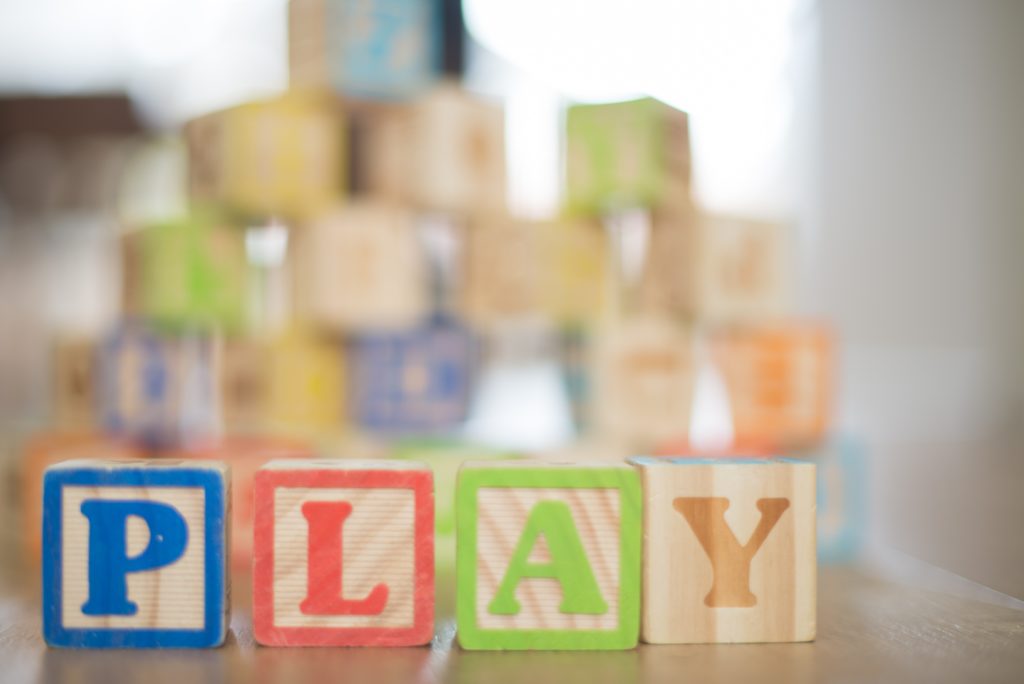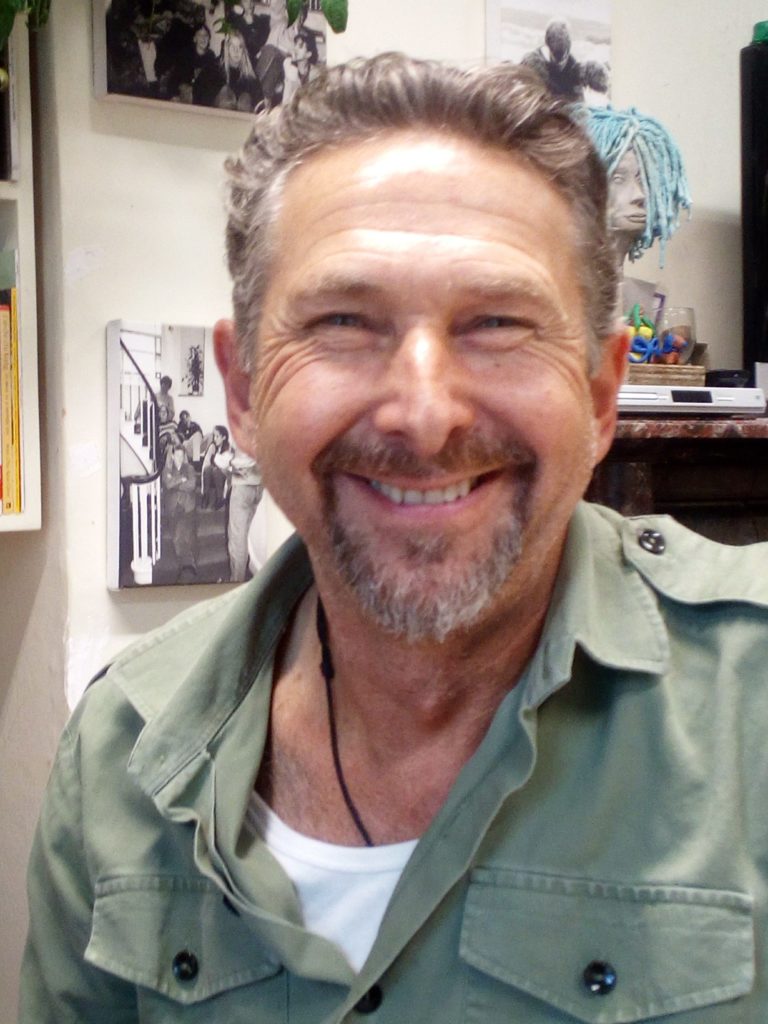Play, by Sean Bellamy

The desire to play is fundamental to the human condition and is impossible to suppress.
Even in the most challenging situations, it will find a way to exist.
Children played in the bomb craters of the Second World War,
Continue to play in the devastation of Syria and will play in the wasteland of our broken planet.
It seems to surface as soon as children come to Sands, no matter how long they have been denied it or forgotten its value and joy.
We see it and hear it happening all over the school. All day long.
The possibility for play is everywhere and in everything. It is as fundamental to our being as our need to love and be loved.
Children play everywhere.
Maria Montessori said that play is the work of children. Strange how they can be so serious about it and still so joyful.
But if we see play as the unique domain of only children,
because we have decided that play is necessary for their development, rather than a universal activity for all humans irrespective of age, then we
reduce it to a function of growth.
We have decided, ‘It is what children do before they grow up. It is what helps them learn. It is part of being young.’ And so we ask that adults ‘put down childish things’.
And yet playful adults are often the most successful educators.
The value and universality of play was ‘rediscovered’ by Froebel and Rousseau 200 years ago, when the child was in the fields and factories, seen as an economic asset as soon as it was able and childhood was both short and full of danger and school was for the few and only a place to fill empty vessels with knowledge. If they survived the first few years, adulthood was waiting just outside the factory door to claim the remainder of their childhood.
Toys reflected adult concerns. Little boys practiced dying with their soldiers and girls practiced domestic drudgery with their dolls.
Despite two hundred years of educators and philosophers advocating for playful classrooms, we still need the dedication and passion of new advocates to remind us of the value of play. The pendulum always settles somewhere a long way from joyful and imagine how eroded play has become if we have to ask for 10 more minutes in the day. Maybe adulthood is still waiting outside the door listening to children playing and shaking its head in disapproval. It frowns on laughter happening in the wrong place. The dull designing school demanding purpose and reducing childhood to algorithms.
But play heals the injured child and can heal the adult watching. But maybe it is not the introduction of play that heals, rather it is its absence that causes disease.
We play because we are human and animal. We do it because we are alive and the world encourages us to experiment with possibility. If it is denied us, we become unwell, incomplete and feel its absence. So, play needs no reason. It is a state of being and just as we feel sad or happy, so we are designed to feel the need to play. To be in the world is to want to play. Maybe we are in a Dark Age of real play and Froebel and Rousseau and John Dewey recognised the death of play in modern society. The Age of Reason and the rise of capitalism had killed play. And the reason to emancipate the child and bring play into school was not just to respect the value of play as a tool for thinking and design but because the child was seen as the reconnector between the Age of Reason and our more innocent roots and ancient past. The child held the dreams of the ancestors.
But one argument would be that play is not the dream manifest in reality, but that it is only a survival mechanism, a reductionist functional approach to play, where the young experiment with their bodies and minds in order that they develop the skills to exist successfully in a challenging world, like lion cubs who wrestle endlessly in playful ways to wire their brains and muscles for the demands of the African savannah. Play is preparation. Not just being and dreaming.
But then, explain the crow sledging on a rooftop in a foil tray or a dog running into a pile leaves endlessly on an autumn day. Not for food, mate, or survival, just for joy.
Playing may not be a survival behaviour. It is an act of pure joy without any function but to feed the soul. Play is something unique and other. So for something so fundamental, it is interesting that it can be oppressed and disappear from much of human interaction so quickly. Yes, it arises like some immortal irrepressible phoenix if given half a chance, but if we tell the story that it is only what children do and it is therefore childish, then play becomes categorised as something that the rite of passage into adulthood requires we abandon. How sad is that?
Modern society seems to have created delineations of all the ages, from child to teen, to grown up and retired, and play has been equally delineated and attributed to particular age groups and to particular spaces. We can all play in Theme Parks but not everywhere in school. We have Play Time and Work Time. We are not meant to play in corridors but can play in the gym or in a playground. We have industrialised and separated play from much of everyday life, built it, designed it as rides, computer games and plastic toys and have learned how to consume it. Play is leisure in a world where productivity is king.
So, have we invested in a narrative that play is leisure and leisure happens when we are not being producers? If this is true, then play will be more fully present in more aspects of less complex societies ,not because they are childlike, as was once believed, but because they have yet to oppress the urge to respond to a complex and joyful human instinct.
Playfulness was and I think is seen as a strangely primitive thing, primaeval and emotional and we carry that narrative with us, so that serious environments avoid play. Unless you’re Starbucks and Apple. Children get to play because they are more in touch with the less complex, with their unadulterated selves, with nature and the irrational.
Einstein told us that he invented theories of light while playing on a beam of light. The disrupter used play to invent.
Einstein hated school!
Despite the new understanding of the value of play, it still needs to be nurtured and given opportunity to flourish. Not necessarily by investing in toys and play equipment, not by bringing it into the work place as a new tool for unleashing profitability, but rather by giving time, space and respect for its place in our way of being whole.
So, how might we nurture genuine play. Not the play that exists in theme parks, arcades, offices and in algorithms?
Non interference creates the best conditions for play to flourish. Genuine non interference creates a culture of non judgement and frees inhibition. Play needs not to be judged and the players need to feel free to create.
A cardboard box interferes less with the imagination’s potential to see opportunity than the toy within it.
But formal play spaces signify the value we place in play and so remind society that play matters [There is an amazing Korean initiative to reintroduce play to city spaces].
Yet then we run the risk of saying that play has limitations and has places where we will encourage its existence and so deny its right to flow elsewhere into other environments.
Play can then be cordoned off to keep others safe from its subversive influence.
For Play is subversive and disruptive and because it is difficult to control in both form and outcome. it is often difficult for adults to value or trust.
Play is risk.
It requires a unique form of behaviour which is cooperative and flexible, listening and responsive and prepared to break the rules of what is normal. Play is Other. It is unique.
As such, play has a significant role in the classroom, if we agree that the best learning can feel playful. It involves playing with ideas, words, voice, shape, body, form, process and outcomes. When we play, we haven’t decided where the game is going. Play increases the possibility of new ends and creative beginnings and how much is that needed now?
Play is universal to all sentient beings.
Play is fundamental to our well being.
Play can be a valuable tool for development of our cognitive abilities.
Play is disruptive.
The right to play is as important to protect as any other human right.
It is not the sole domain of the young.
Nor is it their work. But is their purpose.
The Age of Reason defined play as unreasonable.
Industrialisation killed play by containing it and making it a consumable.
Play can heal and its absence causes disease.
Play is hard to define, but if you are not sure of the outcome but are enjoying the process, then you are probably playing.
And play is purposeful.
Play is connection to the ancestors.
Play is democratic.
Play helps us deal with failure without ever humiliating. Because in play, there is always another time,
Always another game.

Sean Bellamy is the co-founder of Sands Democratic School, an Ashoka Foundation Change Leader, a Varkey Global Teaching Ambassador, an advisor to global educational wellbeing projects, and coach and mentor to new democratic and alternative school start ups around the world. Most days, he can be found teaching psychology, history, cooking or sport at Sands. ‘It helps the other work make sense,’ he says.
His piece on ‘play’ was written in response to a conversation in the Progressive Education Group which was prompted by the launch of the British Psychological Society’s (BPS) campaign, ‘Time to Play’. The BPS state:
“School play offers benefits to children’s wellbeing and is essential for their social development. But time assigned for play in the school day has been eroded. That’s why the BPS has launched the Time to Play Campaign, which is calling for an additional 10 minutes of play at school every day.”

